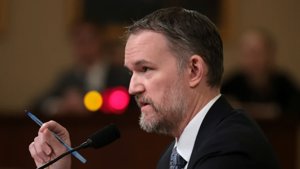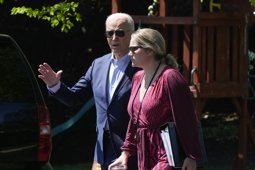
Congress Probes Nashville Mayor Over ICE Interference
Top House committees are investigating Nashville Mayor O’Connell over executive actions that may obstruct ICE operations.
House Launches Oversight into Local ICE Policy Conflict
Two major congressional committees have opened a joint investigation into Nashville Mayor Freddie O’Connell for allegedly obstructing federal immigration enforcement efforts in his city. The inquiry, led by the House Homeland Security Committee and the House Judiciary Committee, follows the mayor’s recent executive order requiring local government employees to document interactions with federal immigration authorities.
The investigation is being spearheaded by Chair Mark Green of the Homeland Security Committee and Rep. Andy Ogles, both Republicans from Tennessee. They are joined by Judiciary Committee Chair Jim Jordan and Rep. Tom McClintock, chair of the subcommittee on immigration enforcement. In a letter to Mayor O’Connell, the lawmakers expressed concern that his policies could undermine public safety and impede the operations of Immigration and Customs Enforcement (ICE).
“While the state of Tennessee has outlawed sanctuary policies,” the letter states, “recent actions from your office threaten to chill immigration enforcement in the City of Nashville and Davidson County.” Lawmakers questioned whether requiring local officials to disclose communications with federal agents could limit the ability of law enforcement to operate effectively.
Executive Order Under Scrutiny
At the heart of the controversy is O’Connell’s executive order, issued after ICE and the Tennessee Highway Patrol arrested nearly 200 individuals identified by the Department of Homeland Security as undocumented immigrants, many with prior criminal records or gang affiliations. O’Connell criticized the ICE operations as harmful to the community and frustratingly opaque, prompting his directive to track local-federal interactions.
Critics argue that the order could allow advance warnings about enforcement actions, which might compromise public safety. Lawmakers raised concerns that nonpublic information shared internally could be used to notify individuals targeted by ICE raids. They cited comments from O’Connell’s legal team acknowledging legal ambiguity around disclosing pending enforcement operations.
Rep. Ogles accused O’Connell of aiding efforts to help noncitizens evade the law, particularly through his involvement in launching a nonprofit initiative, “The Belonging Fund.” The fund assists undocumented individuals with urgent care needs and states that it is entirely funded by private donations without taxpayer support. However, Republican lawmakers remain skeptical of those claims, pointing to a lack of transparency in how recipients are tracked.
“The recipients of these funds are untraceable, and the purpose seems crystal clear: help illegal foreigners evade the law,” said Ogles. He also expressed concern over the broader implications for public safety, referencing community impacts and recent incidents involving violence.
O’Connell joins a growing list of Democratic officials under scrutiny amid heightened immigration enforcement by the Trump administration. In a separate case, Rep. LaMonica McIver of New Jersey was recently charged with assault after allegedly forcing entry into an ICE facility during a protest with two other Democratic House members. McIver has denied the allegations, calling them politically motivated.
The congressional inquiry into O’Connell’s policies underscores the ongoing clash between federal immigration priorities and local governance. As the investigation proceeds, it could set precedents for how municipal leaders navigate cooperation with federal law enforcement, especially in cities pushing back against nationwide immigration crackdowns.






